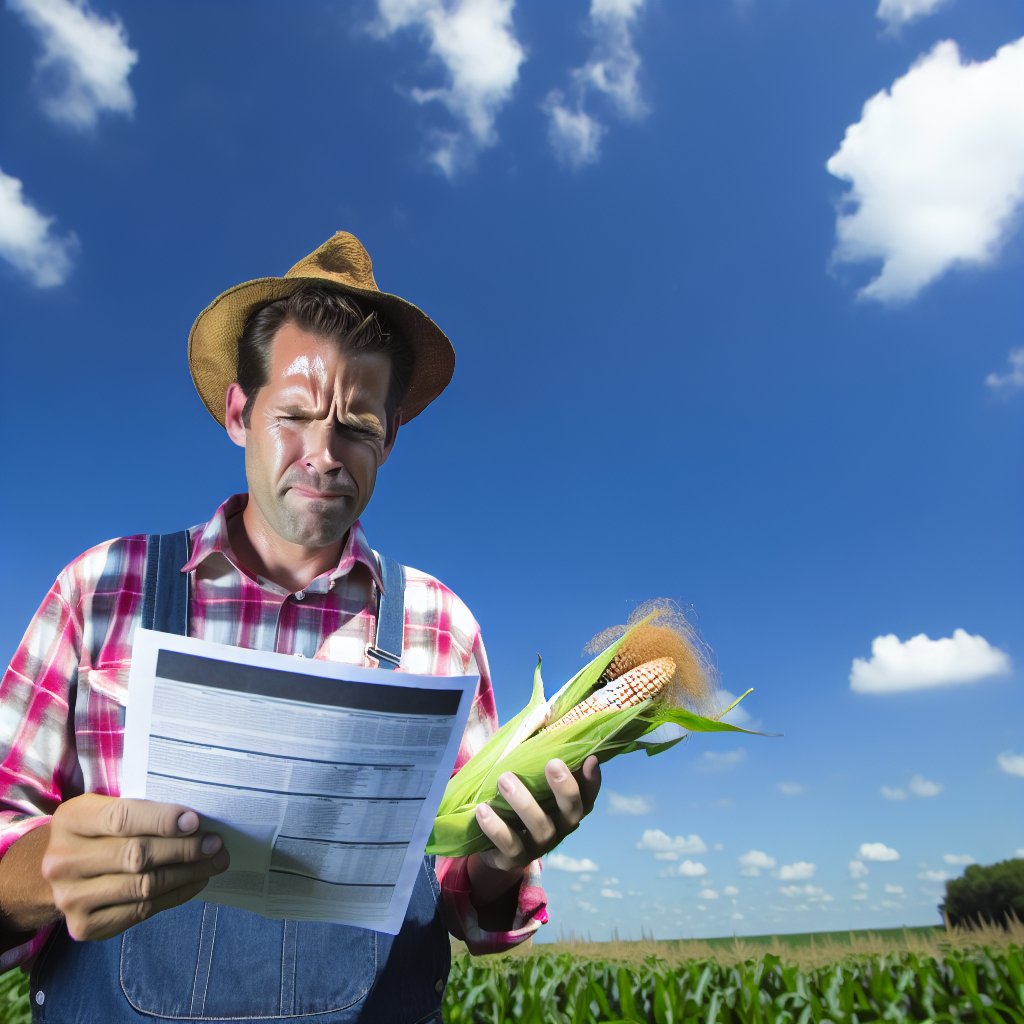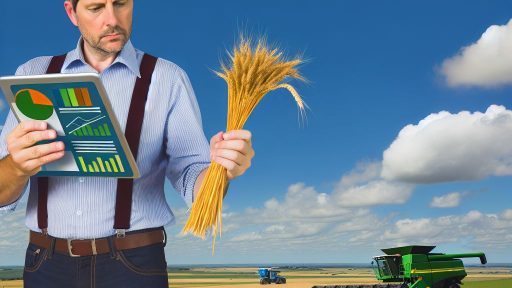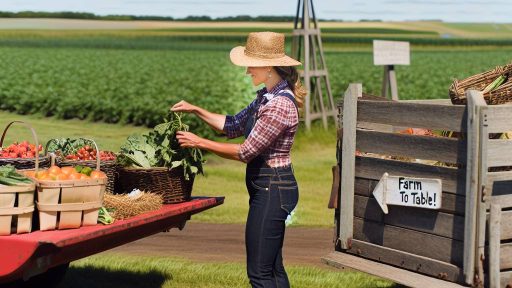Introduction to Comprehensive Crop Insurance and its Importance in Modern Agriculture
Comprehensive crop insurance plays a vital role in modern farming.
This type of insurance safeguards farmers against financial losses.
It covers various risks that threaten crop yield and quality.
Farmers face numerous challenges, including adverse weather conditions.
Additionally, pests and diseases can significantly impact crops.
Thus, having insurance helps protect their investments.
Understanding the Coverage
Comprehensive crop insurance typically includes multiple aspects.
It covers natural disasters such as droughts and floods.
Moreover, it protects against crop failures due to disease outbreaks.
Farmers can choose policies tailored to their specific needs.
This flexibility ensures adequate coverage for various crops.
Enhancing Financial Stability
Crop insurance enhances the financial stability of farms.
By mitigating losses, it allows farmers to plan for the future.
Farmers can make informed decisions about planting and investments.
This stability encourages growth and expansion in farming operations.
Transform Your Agribusiness
Unlock your farm's potential with expert advice tailored to your needs. Get actionable steps that drive real results.
Get StartedEncouraging Sustainable Practices
Comprehensive crop insurance promotes sustainable agricultural practices.
It encourages farmers to adopt innovative techniques.
Farmers can experiment with new crop varieties and technologies.
This experimentation can lead to increased resilience against risks.
Supporting Rural Economies
Insurance not only helps farmers but also supports rural economies.
Financially stable farms contribute to local job creation.
Additionally, they bolster supply chains and local businesses.
A healthy farming sector positively impacts community growth.
Risk Mitigation: How Crop Insurance Protects Farmers from Financial Losses
The Importance of Crop Insurance
Crop insurance is essential for modern farmers.
It safeguards their livelihoods against unpredictable events.
Farmers face numerous risks, such as drought, floods, and pests.
Without insurance, these risks can lead to devastating losses.
Thus, crop insurance becomes a critical tool for financial stability.
Types of Risks Covered
Crop insurance covers a variety of risks.
Firstly, it protects against weather-related factors.
Drought and excessive rainfall can damage crops significantly.
Secondly, it offers protection against pests and diseases.
These threats can wipe out entire harvests quickly.
Lastly, crop insurance also covers market fluctuations.
These fluctuations can affect crop prices unexpectedly.
Financial Security for Farmers
Having crop insurance provides financial peace of mind.
Farmers can invest confidently in their operations.
They know they have a safety net in place.
Consequently, this security allows for better decision-making.
Showcase Your Farming Business
Publish your professional farming services profile on our blog for a one-time fee of $200 and reach a dedicated audience of farmers and agribusiness owners.
Publish Your ProfileFarmers can optimize resources without fearing total loss.
Improving Access to Credit
Crop insurance enhances a farmer’s creditworthiness.
With insurance, farmers can secure loans more easily.
Financial institutions see insured farmers as lower risks.
This access to credit is vital for growth and expansion.
Therefore, crop insurance is a catalyst for financial development.
Encouraging Sustainable Practices
Crop insurance can promote sustainable farming practices.
It incentivizes farmers to consider long-term plans.
When farmers are protected, they can explore innovative techniques.
These techniques often improve efficiency and yield.
As a result, sustainable agricultural practices become more common.
Contributing to the Economy
Crop insurance plays a significant role in the agricultural economy.
It protects not only farmers but the broader economy.
When farmers are secure, food supply remains stable.
This stability is vital for local and national markets.
Moreover, a thriving agricultural sector contributes to job creation.
In this way, crop insurance has a ripple effect on the economy.
Enhancing Loan Eligibility: The Impact of Crop Insurance on Securing Financing
Understanding Loan Requirements
Many financial institutions require insurance for agricultural loans.
This insurance acts as a crucial safety net for lenders.
It provides assurance that farmers can repay their loans.
Without insurance, obtaining financing becomes more challenging.
The Role of Crop Insurance
Crop insurance reduces financial risks for farmers.
It covers losses from natural disasters or crop failures.
This coverage increases farmers’ attractiveness to lenders.
Lenders see insured farmers as lower-risk borrowers.
Improving Credit Ratings
Maintaining crop insurance can improve credit ratings.
Insurance demonstrates financial responsibility to lenders.
Substantially, this can lead to better loan terms.
Ultimately, improved credit ratings open more financing options.
Accessing Government Programs
Many government programs require proof of crop insurance.
These programs can provide additional funding opportunities.
Farmers can leverage these funds to invest further in their operations.
This access to resources strengthens their financial stability.
Building Relationships with Lenders
Having crop insurance fosters trust between farmers and lenders.
Lenders are more likely to work with insured farmers.
Strong relationships can result in favorable loan conditions.
Trust established through insurance can lead to more flexible financing options.
Enhancing Financial Readiness with Crop Insurance
Crop insurance is a powerful tool for modern farmers.
It enhances loan eligibility and strengthens financial readiness.
Farmers who prioritize insurance can secure necessary funding.
Showcase Your Farming Business
Publish your professional farming services profile on our blog for a one-time fee of $200 and reach a dedicated audience of farmers and agribusiness owners.
Publish Your ProfileUltimately, this readiness promotes sustainable farming practices.
See Related Content: Adopting Food Safety Standards to Improve Farm Profitability
Boosting Farmers’ Confidence
The Psychological Benefits of Insured Crop Production
Comprehensive crop insurance significantly boosts farmers’ confidence.
It provides a safety net against unforeseen events.
This assurance allows farmers to focus on productivity.
Consequently, they can invest in better resources and technologies.
Reducing Financial Anxiety
Financial anxiety can immobilize farmers when disaster strikes.
With insurance, farmers experience reduced stress levels.
They can make more calculated decisions without fear of losses.
This approach encourages innovative practices in farming.
Enhancing Future Planning
Coping with uncertainty becomes manageable with crop insurance.
Farmers can plan their operations with increased foresight.
This planning leads to better crop rotations and soil management.
Ultimately, it results in improved yields in the long run.
Encouraging Community Growth
When farmers feel secure, their communities thrive.
The economic stability of individuals positively affects local economies.
More farming success leads to enhanced market opportunities.
This chain reaction benefits related industries and services.
Building Long-Term Resilience
Farmers with insurance develop resilience over time.
Their ability to bounce back after setbacks improves significantly.
Such resilience fosters a proactive mindset among farming communities.
Moreover, it encourages collaboration and sharing of best practices.
Find Out More: Farm Waste Management Regulations
Adapting to Climate Change: The Role of Crop Insurance in Sustainable Farming
Understanding the Impact of Climate Change
Climate change significantly affects farming practices worldwide.
Unpredictable weather patterns create challenges for farmers.
Increased frequency of droughts and floods disrupt crop yields.
Farmers often struggle to adapt to these rapid changes.
Importance of Crop Insurance
Crop insurance plays a crucial role in modern agriculture.
It helps mitigate financial risks associated with climate-related disasters.
Farmers gain peace of mind through comprehensive coverage.
This insurance provides protection against revenue loss.
Types of Crop Insurance Available
Farmers can choose from several types of crop insurance.
Actual Revenue History (ARH) insurance covers actual revenue losses.
Yield Protection (YP) insurance protects against yield loss.
Revenue Protection (RP) combines both yield and price coverage.
Benefits of Comprehensive Crop Insurance
Comprehensive crop insurance offers multiple advantages.
It stabilizes income during adverse weather events.
This stability allows farmers to plan for future seasons.
Farmers can invest in sustainable practices with less worry.
Encouraging Sustainable Farming Practices
Insurance programs encourage the adoption of sustainable methods.
Showcase Your Farming Business
Publish your professional farming services profile on our blog for a one-time fee of $200 and reach a dedicated audience of farmers and agribusiness owners.
Publish Your ProfileFarmers become more willing to implement innovative techniques.
Reduced risk enables investment in eco-friendly technology.
Consequently, these practices benefit both the environment and yield.
Crop Insurance as a Vital Tool for Farmers
Crop insurance remains a vital tool for farmers.
It helps them adapt to climate change and secure their livelihoods.
By embracing this support, farmers can thrive sustainably.
Gain More Insights: Comparing Types of Agricultural Insurance for Your Farm
Innovations in Crop Insurance: How Technology is Improving Coverage Options
Data-Driven Decision Making
Farmers now leverage data analytics for better risk management.
This approach allows for more accurate assessments of potential losses.
In addition, satellite imagery provides insights into crop conditions.
Real-time weather data helps farmers make informed decisions quickly.
As a result, insurance providers can offer tailored policies to meet specific needs.
Smart Contracts and Blockchain Technology
Smart contracts streamline the claims process significantly.
Using blockchain technology increases transparency in insurance transactions.
This approach reduces fraud and enhances trust between farmers and insurers.
Consequently, claims can be processed faster, benefiting farmers financially.
Mobile Applications for Farmers
Mobile applications provide easy access to crop insurance information.
Farmers can now submit claims and access their policy details anytime.
These apps often include educational resources to help farmers understand coverage options.
Additionally, they facilitate communication with insurance agents in real time.
Precision Agriculture Tools
Precision agriculture uses technology to optimize farming practices.
Devices like drones monitor crop health and enhance decision-making.
This data can be shared with insurance providers for more accurate assessments.
Better assessments lead to more suitable insurance options.
Remote Sensing Technologies
Remote sensing technologies assist in monitoring large fields efficiently.
These tools provide valuable information for loss assessments after adverse events.
As a result, claims adjusters can make more informed decisions quickly.
Thus, farmers receive timely financial support when they need it most.
Uncover the Details: Understanding Pesticide Withdrawal Periods

The Economic Impact of Crop Insurance on Rural Communities and Local Economies
Stabilizing Farmer Income
Crop insurance provides financial security to farmers during unpredictable events.
This financial buffer helps stabilize overall income levels.
Farmers can maintain spending in the community despite losses.
Supporting Local Businesses
When farmers feel secure, they are more likely to invest in local services.
This includes purchasing equipment and supplies from nearby stores.
Consequently, this spending bolsters local businesses.
Encouraging Agricultural Innovation
With financial safety nets, farmers can explore innovative farming methods.
They can invest in new technologies without the fear of total loss.
This fosters a culture of experimentation and improvement in practices.
Enhancing Food Security
Crop insurance contributes to consistent food production levels.
Reliable production is vital for meeting local and national food needs.
Showcase Your Farming Business
Publish your professional farming services profile on our blog for a one-time fee of $200 and reach a dedicated audience of farmers and agribusiness owners.
Publish Your ProfileThis stability strengthens overall food security in the region.
Creating Job Opportunities
As farms grow due to insurance-backed investments, they create jobs.
Increased farm operations lead to more hiring for seasonal and full-time roles.
This contributes to a lower unemployment rate in rural areas.
Building Community Resilience
Crop insurance helps communities recover from agricultural disasters.
Quick recovery is essential for maintaining economic stability.
Communities united in agriculture become more resilient against future adversities.
Encouraging Sustainable Practices
Financial security allows farmers to adopt sustainable practices.
Investing in environmental stewardship benefits the community long-term.
These practices help ensure a healthy ecosystem for future generations.
Comparative Analysis: Crop Insurance vs. Other Risk Management Strategies
Understanding Risk Management Strategies
Risk management is crucial for modern farming operations.
Farmers face a myriad of uncertainties each growing season.
These uncertainties can stem from weather patterns, pests, and market fluctuations.
Thus, effective strategies are vital for protecting investments.
Overview of Crop Insurance
Crop insurance offers financial protection against specified losses.
It guards against events like drought, floods, and disease outbreaks.
Farmers pay premiums to secure coverage for their crops.
This mechanism ensures that they receive compensation in case of a loss.
Limitations of Other Risk Management Strategies
Diversification is a common risk management tactic among farmers.
However, it requires investment in multiple crops and significant resources.
Another strategy involves investing in technology for monitoring and predictions.
Yet, equipment costs can become prohibitive for small farms.
Additionally, hedging in commodity markets offers potential protection.
This strategy, however, demands financial expertise that many farmers lack.
Benefits of Crop Insurance Compared to Other Strategies
Crop insurance provides a safety net without extensive capital investment.
Unlike diversification, it allows farmers to focus on their core crop operations.
Moreover, it offers faster financial support during crises.
This speed helps farmers to recover more quickly from losses.
Successful Case Studies in Crop Insurance Implementation
Emily’s Organic Farms used crop insurance effectively last year.
Severe drought affected surrounding farms, but Emily’s coverage mitigated her losses.
She was able to replant and sustain her operation through the next season.
Similarly, Green Valley Farms benefited from timely claims post-flooding.
These examples demonstrate the reliability of crop insurance in crises.
Implications of Crop Insurance for Future Farming
Crop insurance stands out among risk management strategies.
It provides essential protection with less strain on resources.
Consequently, farmers are better equipped to handle uncertainties.
As modern farming becomes increasingly complex, reliance on comprehensive crop insurance is likely to grow.
The Future of Crop Insurance in Supporting Modern Farming Practices
Addressing Current Challenges
Modern farms face numerous challenges today.
These include climate change, market volatility, and disease outbreaks.
Comprehensive crop insurance helps farmers navigate these issues.
Showcase Your Farming Business
Publish your professional farming services profile on our blog for a one-time fee of $200 and reach a dedicated audience of farmers and agribusiness owners.
Publish Your ProfileIt provides essential financial protection during unexpected events.
Enhancing Financial Stability
Crop insurance contributes significantly to financial security for farmers.
It allows them to recover quickly after a loss.
This financial resilience fosters long-term planning for farmers.
In turn, it encourages investment in sustainable farming practices.
Encouraging Technological Adoption
Crop insurance promotes innovation in farming practices.
Farmers are more likely to adopt new technologies when protected.
This leads to increased efficiency and productivity.
Moreover, advanced technologies can mitigate risks associated with farming.
Supporting Sustainable Practices
Comprehensive crop insurance aligns with sustainable agriculture goals.
It motivates farmers to engage in environmentally-friendly methods.
Access to insurance can support biodiversity and soil conservation.
Farmers can implement strategies that enhance ecosystem health.
Looking Ahead
The future of crop insurance appears promising for modern farms.
As agricultural practices evolve, so will insurance products.
This evolution will accommodate diverse farming needs and challenges.
Ultimately, comprehensive crop insurance will continue to be essential.
It ensures the viability of farming in an uncertain world.




